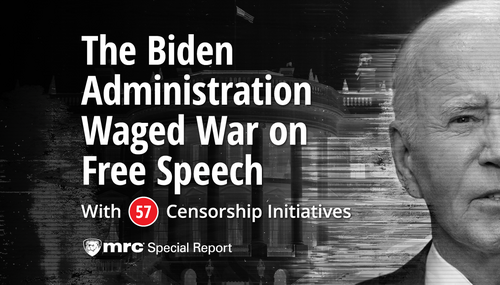In May 2007, Matt Mabe was a junior Army officer who had done two tours of duty in Iraq and was leaving the service for good to pursue a career in journalism -- or so he thought.
In "One of Us," which appears in the new issue of the Columbia Journalism Review, Mabe reveals that of his journalism school colleagues, "most, it seemed, had never met a veteran," although that didn't stop them and their teachers and lecturers from hostile stereotyping of military members as troubled, poor, scheming, and stupid.
I was twenty-seven and had spent my entire adult life in uniform. The thought of abandoning my unit in a time of war made me feel cowardly. But having already served two grueling tours in Iraq, I convinced myself that I'd done enough.
That evening, I boarded a plane to New York. I was headed to Columbia's Graduate School of Journalism.
In Iraq, Mabe had come to admire "the few reporters who took extraordinary risks to venture out our way" and had decided "that the next time I came to Iraq, it would be as a reporter." He went to Columbia's Graduate School of Journalism (the publishers of the Columbia Journalism Review) and left with choice criticisms of journalistic attitudes toward the military:
Columbia was a fresh start. No uniforms, no one to salute. At first, I relished being among students from different walks of life: lawyers and businesspeople, teachers and activists, creative people with strong convictions and a range of views on every issue. Few of them, however, had any experience with the military. Most, it seemed, had never met a veteran.
Some of their notions about military culture and the conduct of the war typified the simplistic views prevalent in the mainstream media. For example, there was a perception that military service was merely a last resort for poor kids or immigrants; all veterans, some people assumed, suffered some degree of Post-Traumatic Stress Disorder. It signaled to me that the cultural rift between the institution I had left and the one I was joining was more hardwired than I had realized, and I increasingly found myself defending the military against stereotypes.
As the semester progressed, I felt a creeping sense of isolation. I had my own criticisms about the failed strategy that plunged Iraq into chaos, but I was resentful of the hostility from prominent panelists and lecturers at the school that year. One evening, an award-winning photographer presented work he'd done in Iraq to my war correspondence class. During his talk, he ridiculed the hapless officers and scheming NCOs he'd dealt with on his various embeds, caricaturing them with tired labels and silly voices. He even delivered a mocking impersonation of one dim-witted private assigned to protect him.
These were extreme views, yet as some of my classmates laughed that evening, images of the soldiers my unit had lost swirled in my head. Brave men who had died serving a cause they believed in didn't deserve such desecration, I thought. I sought advice from a professor about how to manage the raw emotions these interactions provoked. Her response, as she later wrote in my performance evaluation, was hardly encouraging: "I would advise that Matt refrain from working in Iraq until he feels comfortable maintaining an emotional distance from his old life, so as not to impair his journalistic judgment."
Mabe's tale ends on a bitter twist, with the soldier-turned-journalist involuntarily turning soldier again, being called up as a reservist for a tour of duty in Afghanistan.




